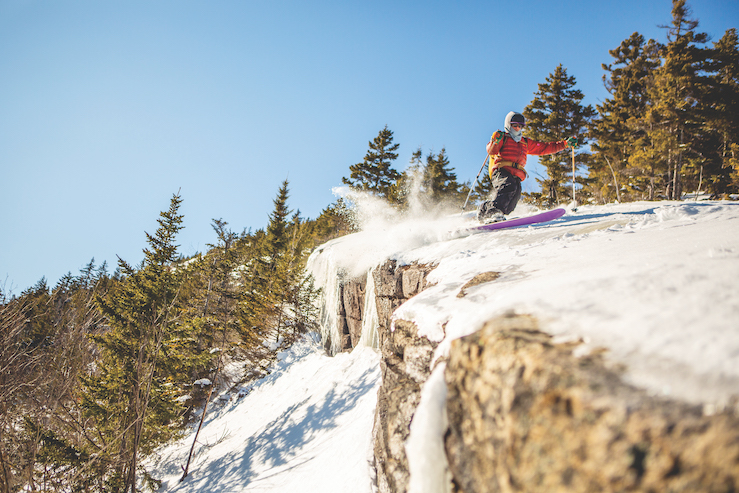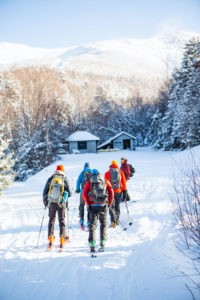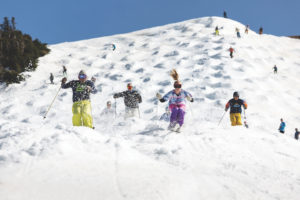
It was inevitable perhaps, but when resorts shut down abruptly last March due to the coronavirus, throngs of skiers unwilling to let their seasons go so early grabbed their touring setups in pursuit of earning their own turns. One Saturday at Pinkham Notch, N.H., saw some 400 cars jammed and overflowing the trailhead parking area to access Tuckerman Ravine, prompting the U.S. Forest Service’s Mount Washington Avalanche Center to shut it all down out of concern for safety.
As a new spring approaches and threats from the virus persist, issues of overcrowding at Tucks — the undisputed king of spring in the backcountry — remain. These aren’t simply short-term concerns. Even after threats of the virus are long gone, the environmental impacts of overstressing Mount Washington will persist. Fortunately, Tuckerman Ravine isn’t the only game in town for skiers in search of spring corn. Far from it.
Thanks to an incredible amount of impassioned work in recent years by nonprofits including RASTA (Rochester/Randolph Area Sports Trail Alliance) and Granite Backcountry Alliance, dozens of new alternatives for the earn-your-turn enthusiasts have never been easier to access and enjoy. These alliances have ushered in a new era of “sanctioned glading” across Vermont, New Hampshire and Maine.
The model was brought to the fore in 2013 when RASTA was formed. Here, a grassroots organization partnered with private and public landowners — including agencies such as the U.S. Forest Service — to develop backcountry ski trails. While its initial focus was to open ski access, the movement has since grown to include other forms of non-motorized, multi-use recreation spanning all four seasons. This formula caught on across the border in New Hampshire.




